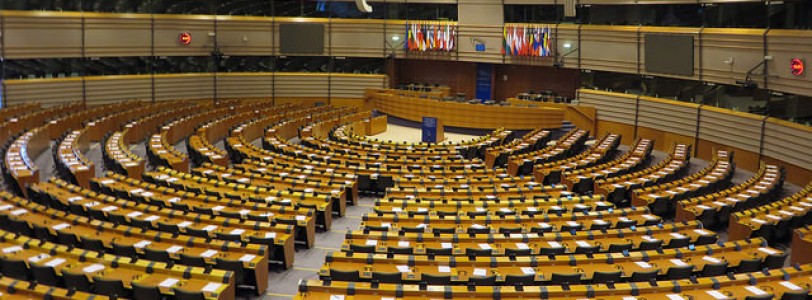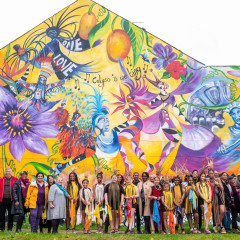One of the complaints often rallied against the European Union is the perceived lack of democracy. While there is certainly room for improvement in regards to the democratic operations of the Union, part of this perception comes from a failure to provide clarity and explanation as to the inner-mechanics of the EU. Below, we have given a brief outline as to some of the more important institutions.
European Parliament
The European Parliament is perhaps the institution we as citizens are most involved with, although we pay very little attention to it. The European Parliament is made up of Members of European Parliament (MEP), which are elected every 5 years by citizens of the member state.
European Parliament can amend and reject proposals for legislation made by the Commission. It also has significant say in European Budgets, and it can appoint and dismiss the Commission. It has never exercised the power to dismiss, but all Commission Presidents must subject themselves to a vote of approval from the Parliament. This is an important area, as the EP is a democratically elected institution for the citizens of Europe, and it allows those citizens to have a voice over who presides in the Commission.
Recently, the European Parliament took a vote and decided by a margin of 4, to call upon member states to drop all charges held against Edward Snowden. Tom McCarthy writes more about this 'game-changer' vote in The Guardian.
European Commission
The European Commission is most akin to the executive of a Government, in that it has the power to set agendas, propose laws, implementation strategies of said laws, management of the budget, and represent the EU in external settings.
The current Commission President is Jean-Claude Juncker. He defines policy direction, and assigns portfolios to each of the commissioners. There are 28 commissioners - one from each member state, and the idea is that they cede their nationalist tendencies and take a more European outlook. There are no individual decision-making powers, as the Commission works on the principle of collective responsibility.
The Commission is answerable to the European Parliament, and the President has to be approved by the Members of European Parliament, thus providing accountability by democratically elected representatives.
Council of Ministers
The Council of Ministers is the law making body of the European union. Composed of national ministers, it can often be referred to as the Council of the European Union. It is the heart of decision making in the EU, and all proposals that originate from the commission have to be rubber-stamped by the council before they become law.
It is the body that represents national interests, and requires compromise and negotiation between said member states. This is due to the two types of voting system in place, unanimity and Qualified Majority Voting. The latter gives different weightings to different countries, depending on their population size, and serves to be more democratic by preventing smaller countries from dominating larger ones.
European Court of Justice
The first thing people may think of when they hear the European Court of Justice is the European Court of Human Rights. These are two separate bodies, and the latter has nothing to do with the EU.
Instead, the European Court of Justice is the highest court in the European Union, but only on matters regarding EU law, meaning they interpret supranational laws, and ensure they are being applied and enforced by the member states. Decisions made by the European Court of Justice cannot be appealed.
There are 28 Judges, again, one from every member state, and they are situated in Luxembourg, offering a degree of separation from the political institutions of the EU.
It was the ECJ that ruled in 1964 that member states had transferred sovereign rights to the Union, effectively allowing European law to supersede domestic laws.
European Council
The European Council is the group we may most be familiar with, but they are not the same thing as the Council of Ministers, despite incredibly similar names. Instead, the European Council is comprised of the heads of state or government of the 28 EU member states, the European Council President and the President of the European Commission. That means it is a meeting between the likes of Germany's Chancellor Angela Merkel, French President François Hollande and our PM David Cameron. The European Council President is Donald Tusk, and as stated, the President of the Commission is currently Jean-Claude Juncker. The European Council meet to decide political direction and agenda within the EU. It was here that David Cameron negotiated his European deal.
This article is one in a series we have published on the EU in the lead up to the referendum
We have also covered the history of the European Union, as well as the main arguments for staying in the EU, and for leaving the EU.
REGISTER TO VOTE
Please do take the time to read both sides of the argument, and do some of your own research, and then register to vote. The deadline for this is the 7th June. Doing so only takes five minutes, and you just need your address and NI number if you live in the UK. Voting is a civil liberty that is so often taken for granted, with people dismissing the vote as unfair, or undemocratic. Well this is a referendum, which is incredibly democratic. There are no constituencies, no party politics, no winner bias. It is one person, one vote, two options. Your vote will directly influence the outcome of the referendum, and help decide the future of this country. Please don't waste this opportunity.
You also have to be over 18 - sorry!
https://www.gov.uk/register-to-vote
Photo by diamond geezer









0 Comments